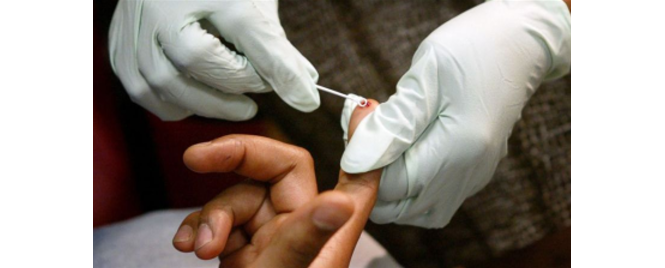NEW MAP REVEALS HIV RISK GREATEST IN SOUTHERN CITIES FOR GAY, BISEXUAL MEN.
A map documenting HIV rates for gay and bisexual men has revealed they are most at risk for becoming infected in multiple southern cities, according to a report being presented today by Emory University researchers.
The cities with the highest rates included Columbia, South Carolina, El Paso, Texas, and Jackson, Mississippi. In these cities, more than 25 percent of men who have sex with men (MSM) had been diagnosed with HIV.
“This is really the first time we’ve been able to examine the HIV infection burden ... at such fine levels of geography,” Eli Rosenberg, assistant professor of epidemiology at Emory’s Rollins School of Public Health, said during a news conference today.
According to the report, the South is home to 21 of the 25 metropolitan areas with the highest HIV prevalence among MSM. The analysis provides “new evidence” of a growing disparity between the HIV epidemic in the South relative to the rest of the U.S. -- but it is unclear whether this says more about rising transmission rates in the South, or public health successes in other regions.
Overall, gay and bisexual men are more than 57 times more likely to be diagnosed with HIV than other men in the U.S., the study authors said.
“Where HIV is most a problem are places that are failing gay men,” said George Ayala, executive director of the Global Forum on MSM and HIV, a leading advocacy group that was not involved in the report.
Where health systems fail, according to Ayala, is in the process of identifying people who have HIV and immediately linking them with care. Gay and bisexual men may be more likely to face additional barriers such as poverty and stigma, he said.
Because federal and state funding for HIV prevention can be directed to where the disease hits hardest, knowing where HIV is most concentrated may enable public health agencies and local organizations to tweak how they distribute resources at the local level, according to Rosenberg.
“We really want this to be a tool for public health practitioners and policy makers,” he said.
While the U.S. Centers for Disease Control and Prevention publishes the prevalence of HIV among different races and age groups, it reports only the raw number of cases among MSM. The Emory researchers used other national surveys, such as the National Health and Nutrition Examination Survey, to estimate where MSM were distributed across the country.
Estimates of MSM by race are also not available, though the CDC estimated in February that half of black MSM and a quarter of Latino MSM will be diagnosed with HIV in their lifetime.
“To stop the spread of HIV in the U.S., we have to understand how, where, and among whom the epidemic is striking the hardest,” Dr. Jonathan Mermin, director of CDC’s National Center for HIV/AIDS, Viral Hepatitis, STD and TB Prevention, said during today's news conference.
Mermin said that a major focus of HIV prevention programs will be expanding access to HIV testing, treatment, and pre-exposure prophylaxis (PrEP), especially among gay and bisexual men of color and transgender individuals. The CDC earmarks targeted funds as a supplement to state and local health departments.
According to one CDC study, these programs could prevent up to 70 percent of new infections over the next five years.
That's why experts say it is important that southern states and cities get on board. CDC data show that the South lags behind the rest of the U.S. when it comes to HIV-positive people getting the treatment they need, or even knowing they’re infected in the first place, Mermin said.
“You see disease concentrated in places that are poorly supported in terms of health infrastructure,” said Ayala. “Those things are really an important part of the story to tell about HIV in the United States."
Follow us on Twitter - @akatechsolution
Leave a Comment
Let Millions of People know about your Product(s) / Service(s)
Target a Specific Audience on different News Categories
Our Partners
"Making the simple complicated is commonplace; making the complicated simple, awesomely simple, that's creativity"
- Charles Mingus


















































